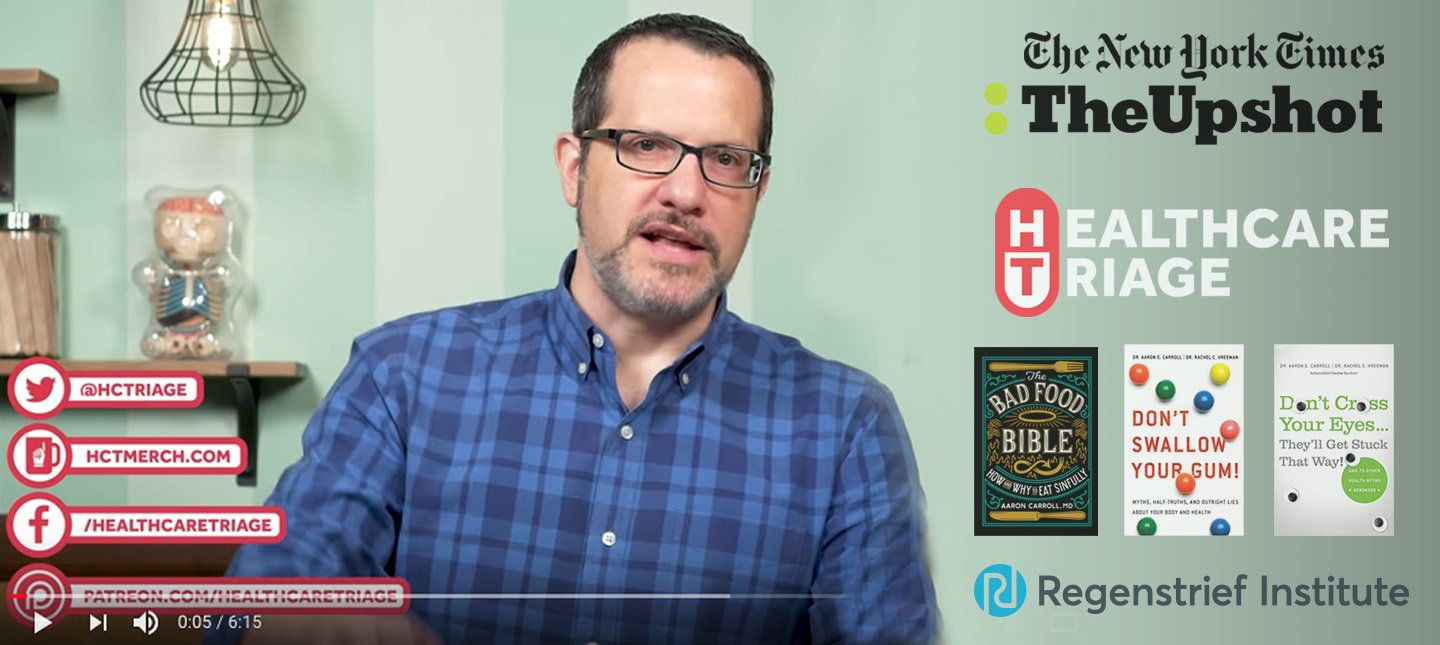Regenstrief Institute vice president for faculty development Aaron Carroll, M.D., M.S., isn’t the typical academic writer. In addition to his research, Dr. Carroll makes it his mission to educate the public on important issues in healthcare. His effort was recently highlighted by John Russell in the Indianapolis Business Journal.
Dr. Carroll uses blogs, videos, newspaper columns and more to inform people. “I’m trying to place things in context, and trying to get people to have a better understanding of health research, health policy, and how all that informs health,” he told the IBJ.
Ten years ago, he started “The Incidental Economist” health services research blog with Austin Frakt, a health economist from Boston University. A few years later, Dr. Carroll started writing regularly for The New York Times section The Upshot. In addition, he runs the YouTube channel “Health Care Triage,” wrote the book “The Bad Food Bible: How and Why to Eat Sinfully,” and co-authored three more books on medical myths.
Writing isn’t Dr. Carroll’s only activity. He is a health services researcher with a keen interest in improving pediatric outcomes. His work focuses on the study of information technology to improve pediatric care and areas of health policy including physician malpractice, the pharmaceutical industry/physician relationship, and health care financing reform.
At Regenstrief, he leads the institute’s faculty development strategy. He is also a professor and vice chair for health outcomes research faculty development in the Department of Pediatrics at the Indiana University School of Medicine and director of the Center for Pediatric and Adolescent Comparative Effectiveness Research.
Read the IBJ’s feature on Dr. Carroll here. https://www.ibj.com/articles/74388-debunking-medical-myths-all-in-a-days-work










